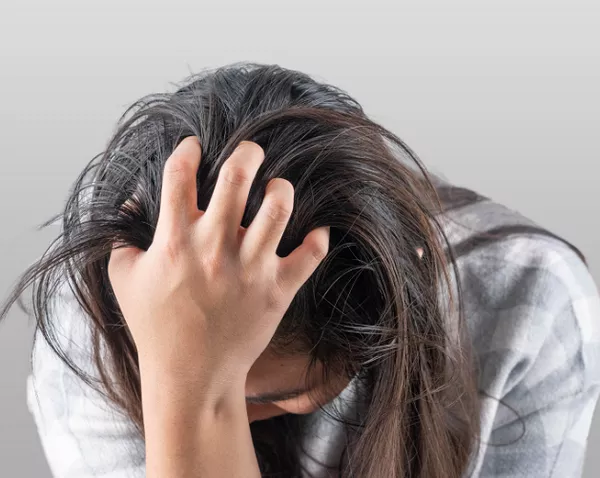Losing weight can be a significant achievement, but it often comes with unexpected side effects, including hair loss. Hair loss is a common concern among individuals undergoing weight loss journeys, and many wonder whether their luscious locks will ever make a comeback. In this article, we delve into the world of hair loss associated with weight loss and explore whether there is hope for regrowth. Read on to discover the answers to your burning questions and find solace in knowing that there is light at the end of the follicular tunnel.
Understanding Hair Loss from Weight Loss
Unraveling the Mechanism
Weight loss-induced hair loss, known as telogen effluvium, is a condition that occurs when the body experiences significant stress or undergoes sudden changes. Rapid weight loss, crash diets, and severe calorie restriction can trigger this temporary form of hair loss. The exact mechanism behind this phenomenon is not fully understood, but it is believed that the stress caused by these factors disrupts the normal hair growth cycle, leading to increased shedding.
The Hair Growth Cycle
To comprehend the possibility of hair regrowth after weight loss-induced hair loss, it’s vital to grasp the intricacies of the hair growth cycle. Hair grows in a cyclic pattern, consisting of three phases: anagen (growth), catagen (transition), and telogen (rest). During the telogen phase, hair follicles rest before eventually shedding and being replaced by new hair during the anagen phase. Telogen effluvium disrupts this cycle, causing a higher number of hair follicles to enter the telogen phase, resulting in hair thinning or even bald patches.
Will the Hair Grow Back?
Temporary Nature of Telogen Effluvium
The good news for individuals experiencing hair loss due to weight loss is that telogen effluvium is usually temporary. In most cases, once the underlying cause (weight loss-related stress) is addressed and the body returns to a state of equilibrium, hair regrowth commences naturally. However, it’s important to note that the regrowth process can be slow, often taking several months or longer before noticeable improvement occurs.
Healthy Diet and Nutrient Intake
Maintaining a healthy diet that provides the necessary nutrients is crucial for hair regrowth. When undergoing weight loss, it’s essential to ensure that the body receives an adequate supply of vitamins, minerals, and proteins to support healthy hair growth. Including foods rich in biotin, zinc, iron, and vitamins A, C, and E can promote hair health and speed up the regrowth process. Consultation with a healthcare professional or registered dietitian can help create a well-balanced diet plan that caters to both weight loss goals and hair regrowth needs.
Supplements and Topical Treatments
In some cases, incorporating specific supplements or topical treatments can assist in hair regrowth. Biotin supplements, for example, are often recommended to support healthy hair, skin, and nails. Other supplements like zinc and iron can also aid in replenishing nutrient deficiencies that might contribute to hair loss. Additionally, topical treatments containing minoxidil, an FDA-approved ingredient, have shown promising results in stimulating hair regrowth. However, it’s important to consult with a healthcare professional before incorporating any supplements or treatments into your routine, as individual circumstances may vary.
Patience and Persistence
Hair regrowth is a gradual process that requires patience and persistence. It’s crucial to remember that every individual’s hair growth rate and response to treatment may differ. While some individuals may experience noticeable regrowth within a few months, others might require a longer timeframe. Maintaining a positive mindset and focusing on overall health and well being can help alleviate stress and promote a favorable environment for hair regrowth. Stress management techniques such as meditation, yoga, or engaging in activities that bring joy and relaxation can aid in reducing the stress that may contribute to hair loss.
Avoiding Harsh Styling Practices
While waiting for hair regrowth, it’s essential to avoid harsh styling practices that can further damage the hair. Heat styling tools, tight hairstyles, and chemical treatments can weaken the hair follicles and impede regrowth. Opting for gentle hair care routines, using mild shampoos and conditioners, and avoiding excessive manipulation can help protect the existing hair and promote a healthy environment for regrowth.
Seeking Professional Guidance
Consultation with a Dermatologist
If you’re concerned about hair loss during your weight loss journey, it’s advisable to seek professional guidance from a dermatologist. They can evaluate your specific situation, conduct necessary tests to rule out underlying conditions, and provide personalized recommendations for promoting hair regrowth. A dermatologist may suggest additional treatments such as platelet-rich plasma (PRP) therapy or laser therapy, which have shown promising results in stimulating hair growth.
Support from a Trichologist
A trichologist, a specialist in hair and scalp disorders, can also provide valuable insights and guidance regarding hair loss and regrowth. They can analyze your hair and scalp health, identify any underlying issues, and recommend appropriate treatments or lifestyle changes to support hair regrowth. Trichologists have a deep understanding of hair biology and can offer targeted solutions tailored to your specific needs.
Conclusion
Hair loss can be a distressing side effect of weight loss, but the good news is that in most cases, the hair will grow back. Telogen effluvium, the temporary form of hair loss associated with weight loss, can be reversed once the body returns to a state of balance. Maintaining a healthy diet, ensuring adequate nutrient intake, managing stress, and following gentle hair care practices are crucial steps in promoting hair regrowth. Seeking professional guidance from a dermatologist or trichologist can provide further insights and personalized recommendations to support the regrowth process. Remember, hair regrowth takes time, so be patient and stay committed to your overall well-being as you embrace the journey toward healthier hair.

